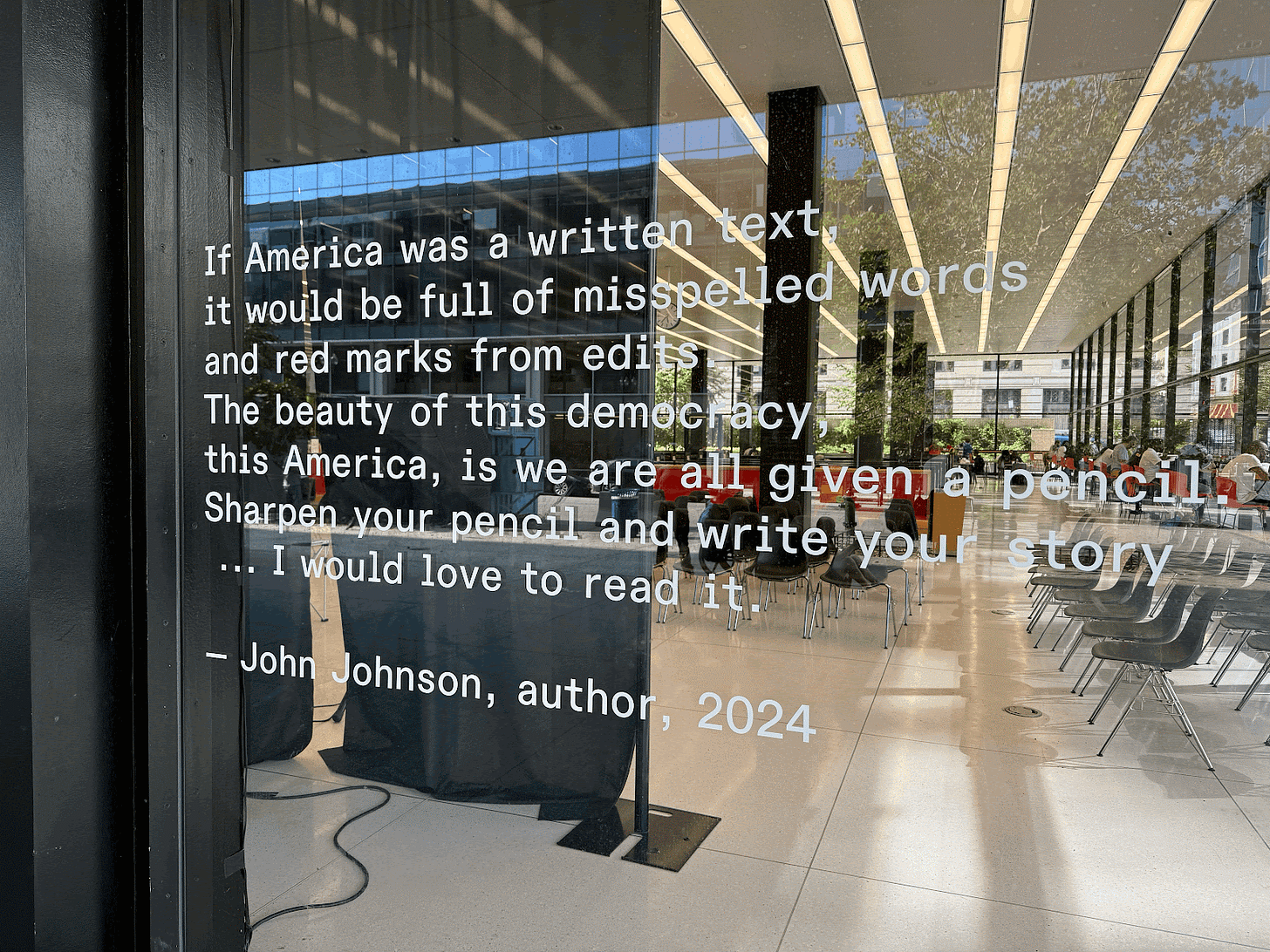
Hello friends! I am bringing you an amazing guest writer this week.
Don’t worry and please don‘t hit unsubscribe: The Golden Hour’s Friday essays will remain free for all. If you want to read this but can’t swing $5/month, simply pay what you CAN afford here and drop me a line so I can comp you!
Copy this and send it to a friend who says they are “tuning out the news.”
More of you are tuning IN each week!
I'm Kate Woodsome, and I have the privilege of guest-writing Anya's newsletter this week. I'm a Pulitzer Prize-winning journalist and visiting affiliate scholar with Georgetown University's Psychology Department, focused on the connections between mental health and democracy. When we strengthen one, we strengthen both. My Substack, Invisible Threads, explores the ties between the two.
When I’m not reporting and writing, I help individuals, organizations and industries develop knowledge, strategies and programming that strengthen both individual and collective wellbeing to reduce burnout and division in order to nurture generations of thriving communities and resilient societies.
In this newsletter, I'll be guiding you through underreported stories with a particular lens on how we can build personal resilience and collective power.
This Week
1.America votes against hope (while the science shows it's exactly what we need)
2.Your Monday stress is rewriting your biology
3.Climate records break while communities build adaptive resilience
4.Young climate activists navigate repression with innovative solidarity
5.Trauma-informed communities prove another way is possible
1.America votes against hope (while the science shows it's exactly what we need)
On July 12th, the world marked the first-ever UN International Day of Hope. While 161 countries backed the day’s creation during a UN General Assembly meeting earlier this year, and four abstained from the choice, the United States stood alone voting “no.”
Let that sink in: America became the only country on Earth to vote against hope.
Edward Heartney, representing the U.S. Mission to the U.N., said America opposed the resolution because of "references to diversity, equity and inclusion that conflict with U.S. policies." Translation: We're so committed to ideology that we'll reject life preservers if they come in colors we don't like.
Here's what makes this both tragic and absurd: research consistently shows that hope is exactly what we need right now. Psychologist C.R. Snyder has shown that hope isn't wishful thinking — it's a teachable skill that combines agency (motivation to pursue goals) and pathways thinking (ability to find routes to those goals).
Impact:
When more than 40 percent of U.S. high school students report persistent hopelessness, when suicide is a leading cause of death among young Americans, the question isn't whether we need hope. It is whether we're willing to do the work that hope actually requires.
As Kathryn Goetzke, founder of the International Foundation for Research and Education on Hope, told me: Hope is "a teachable skill set — one that includes goal-setting, cognitive flexibility, social support and the ability to manage setbacks."
Action steps:
Hope is a skill you can build. Start here:
Master the 90-second rule: When you're feeling overwhelmed or hopeless, remember that stress hormones cycle through your body in 90 seconds. If you don't react during that window, the biochemical flood will naturally subside. This of course becomes challenging in conditions where stress triggers are constant, or the wounds are deeper. But even just having this awareness can be helpful.
Practice "SHINE Hope" (Goetzke's framework):
Stress management skills
Happiness habits
Inspired actions
Nourishing networks
Eliminate challenges
Take the 2-minute Snyder Hope Scale to measure your current hope levels, then reflect on what gives you purpose, direction, and momentum.
While America's government voted against hope, hope doesn't need permission to exist. It lives in every nurse working a double shift, every teacher buying supplies with their own money, every neighbor checking on a stranger, every activist who shows up anyway.
Note: I (Kate) will be hosting a live conversation with Kathryn Goetzke on July 16 at 8 pm EST to share practical skills for building hope. Find details on my Substack.
2.Your Monday stress is rewriting your biology
New research from the University of Hong Kong delivered a finding that could change how we think about societal stress: The “Monday blues” aren't just a mood — they become biologically embedded in our bodies for months.
The study found that older adults who feel anxious on Mondays exhibit significantly higher cortisol levels in their hair samples up to two months later. Even retirees aren’t spared, proving this isn’t about job stress — it’s about how deeply cultural rhythms penetrate our physiology.
Impact:
Professor Tarani Chandola noted that “Mondays act as a cultural ‘stress amplifier.’” The findings suggest societal rhythms embed themselves in human physiology with lasting cardiovascular risks. We're not just stressed on Mondays; we're carrying that stress in our cellular memory.
This research reveals something crucial: Our individual biology is shaped by collective patterns. The personal is political, quite literally, at the hormonal level.
Action steps:
Create Monday transition rituals: Instead of fighting the cultural current, work with it. Plan gentle Monday activities that acknowledge the transition without adding pressure.
Practice nervous system regulation: Learn techniques like a settling breath, exhaling twice as long as the inhale, to interrupt stress cascades before they embed.
Build community buffers: Connect with others who understand that Monday stress is real and systemic, not a personal failing.
Understanding that our stress responses are shaped by societal rhythms can help us respond with self-compassion rather than self-criticism. This is a step toward cultural changes that support collective wellbeing.
Keep reading with a 7-day free trial
Subscribe to The Golden Hour: climate, children, mental health to keep reading this post and get 7 days of free access to the full post archives.






